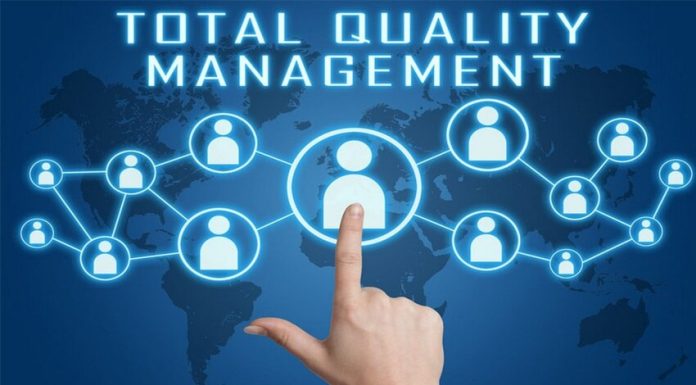By Aimee Garcia
Total Quality Management (TQM) is more than a mere approach; it's a comprehensive philosophy aimed at creating a culture of continuous improvement in an organization. This culture focuses on identifying, reducing, and eliminating errors in manufacturing and other business processes. TQM streamlines supply chain management, elevates customer experiences, and mandates current training for employees. The end goal is to ensure accountability for the overall quality of products or services among all stakeholders involved in the production process.
Initially conceived for the manufacturing sector, TQM's flexible and robust principles have permeated multiple domains. These include but are not limited to, sectors such as banking, finance, and healthcare. This adaptability offers organizations a framework for transformational change, placing long-term, sustainable benefits over transient, short-term goals.
The Scope and Importance of TQM Across Industries
Within any single organization, TQM methodologies can extend to every department, thereby ensuring company-wide alignment towards set objectives and uniform efficiency improvement. This is especially impactful across a gamut of organizational facets like administration, marketing, production, and employee training. Leading Quality Assurance companies often serve as case studies, consistently prioritizing TQM in their operational strategies.
Customer-Centric Approach and Core Values
TQM is steeped in a customer-centric philosophy that continually seeks to better business operations. The quality of your products or services is ultimately determined by customer perception and satisfaction. Feedback mechanisms, such as customer surveys, provide invaluable insights into market needs and can highlight potential areas for product improvement. The resultant data drives the evolution of TQM systems, informing strategies from raw material sourcing to manufacturing protocols and quality assurance methodologies.
Employee Involvement and Education
TQM's efficacy hinges on the willingness of employees to embrace its philosophy. Therefore, open and transparent communication becomes paramount. Managers need to clearly convey organizational goals, expectations, resource limitations, and performance criteria across all departments. Beyond just informing, TQM-driven companies are committed to investing in educational programs and resource allocation that empower employees to fulfill their roles successfully. Retaining a knowledgeable workforce and reducing turnover rates are among TQM's additional, yet crucial, objectives.
Data-Driven Decision Making
Adherence to TQM principles encourages organizations to evolve incrementally, focusing on small, manageable improvements. This makes them more agile in adapting to fluctuating market expectations and consumer needs. It also allows for tailoring services and products to varied markets and demographics. Continuous refinement of processes not only keeps the organization flexible but also deepens the competitive edge it may already possess over rivals in the marketplace. This philosophy is a cornerstone in top QA companies, which is why they consistently uphold all the principles of TQM.
Systematic Approach and Continuous Improvement
In operationalizing TQM, a range of analytic tools are employed, such as process flowcharts, TQM diagrams, and documented workflows. The collective aim is to bolster the systematic approach at the heart of TQM. Everyone involved in the production chain must be knowledgeable about their specific roles and the timing thereof. These processes, once established, undergo constant review to proactively identify and rectify any performance gaps.
In the grand scheme of things, an organization's operational blueprint must be a direct reflection of its broader vision, mission, and long-term plans. TQM mandates a holistic approach to decision-making, which calls for significant financial investment to enshrine quality as a core organizational tenet.
Leadership has to rely on metrics such as production rates, employee turnover, efficiency scores, and other performance indicators to reconcile expected results with actual outcomes. TQM practices are heavily contingent on meticulous planning and extensive documentation. Effective data analysis enables leaders to assess whether these detailed plans are faithfully being executed.
Beyond mere data accumulation, TQM endorses system integrations that facilitate intelligent, data-driven decision-making across departments. For example, real-time inventory data should be universally accessible through Enterprise Resource Planning (ERP) systems to ensure synchronized operations. Such interconnectivity allows for comprehensive, organization-wide alignment, offering a single source of truth for all stakeholders.
While data and systems play a pivotal role in TQM, the human element cannot be sidelined. Effective communication is the linchpin that holds together the various components of TQM, especially in coordinating and streamlining processes. Therefore, TQM places considerable emphasis on human interactions to motivate employees, educate participants, and mitigate errors, be it in everyday operations or during monumental organizational shifts.
The author is a Marketing Consultant at Software Testing lead. Views are personal.











